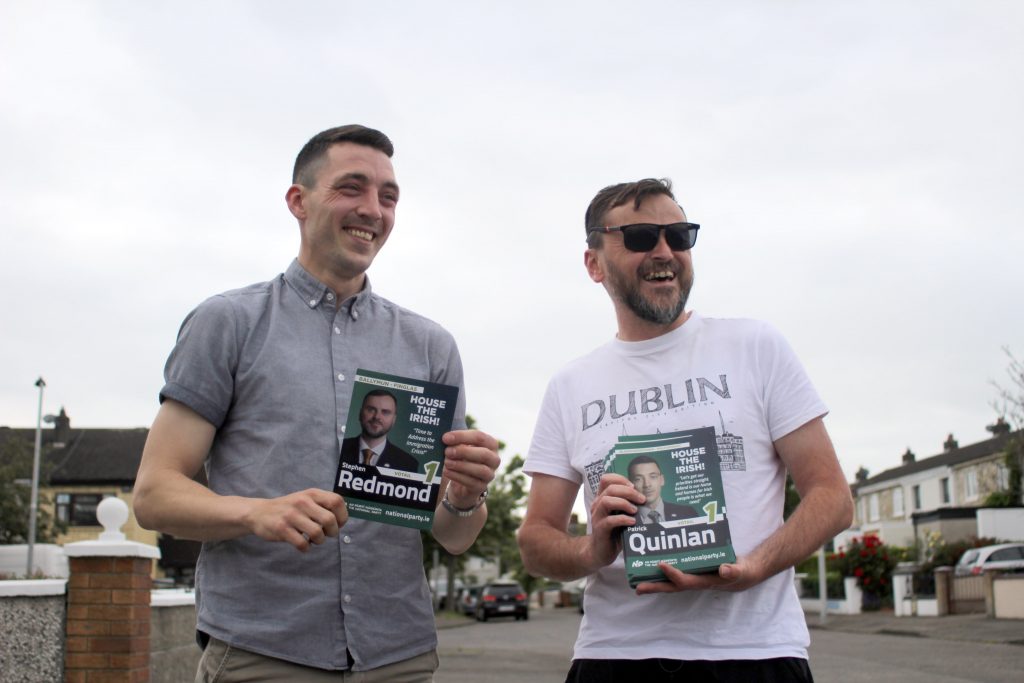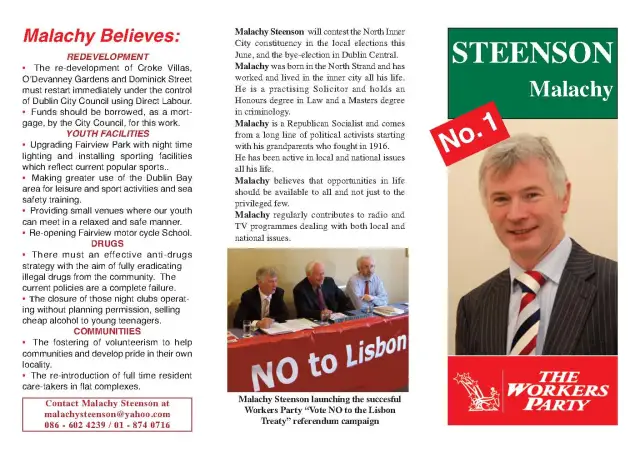As H&D predicted a month ago, Ireland’s much-hyped anti-immigration movement turned into a divided and mostly feeble electoral challenge last week. (Though Ireland voted on Friday, results weren’t declared until the following Thursday.) Two right-wing independents were elected as MEPs and a third (in Dublin) narrowly failed, but these were conservatives rooted mainly in anti-abortion and other Catholic social conservative movements, rather than in the anti-immigration protests.
While H&D readers can celebrate the fact that Sinn Féin has lost many votes due to its pro-immigration stance and general wokeism – and SF’s former Westminster MP Michelle Gildernew hilariously failed in her bid for a European seat – it would sadly be wrong to conclude that any coherent anti-immigration movement has yet emerged.
In the European elections, the tragi-comic National Party’s competing factions polled 0.8% and 0.7% of first preferences in the Dublin constituency; and 0.6% and 0.5% in the Midlands/NW constituency. In the South constituency neither faction put up a candidate.
(Bear in mind that in both the European and local council elections in Ireland, the STV electoral system helps smaller parties to maximise their support, because there is no such thing as a “wasted vote” – unlike in the UK’s first-past-the-post system where smaller parties usually struggle for credibility.)
In the local elections, the deputy leader of the Reynolds faction of the NP (Patrick Quinlan) did manage to win one of the five seats in the Blanchardstown-Mulhuddart ward of Fingal County Council, to the west of Dublin. Parts of this area have suffered serious deprivation and crime problems for decades: some of the background to recent anti-immigrant riots involves conflict between native Irish gangsters and imported criminals.

But this was the only success for either National Party faction across the whole of Ireland.
The Irish Freedom Party – which is the main voice of the ‘Irexit’ movement and has also adopted a milder version of anti-immigration policies – also won just one council seat in the entire country. This was in the Palmerstown-Fonthill ward of South Dublin County Council.
In the Lifford-Stranorlar ward of Donegal County Council, the independent anti-immigration campaigner Niall McConnell (known to some H&D readers for his online broadcasts where he has interviewed several prominent figures on the right) polled 7.7% of first preferences. He picked up about one-fifth of the transfers from the more ‘moderate’ conservative party Aontú, and a few transfers from a protest vote party that campaigns on housing issues, but these transfers were nowhere near enough to gain Mr McConnell a seat.
In the European elections, the Irish Freedom Party polled 0.9% in Dublin, 2.0% in Midlands/NW (where their candidate was the party leader Hermann Kelly, once associated with Nigel Farage), and 1.8% in South.
A smaller fringe party involved in the anti-immgration protests, ‘The Irish People’ fared even worse with 0.7% in Midlands/NW; 0.7% in South; and 0.5% in Dublin.

In most of the country, the more substantial electoral challenges came from longer-established parties and independents who combined an element of anti-immigration politics with traditional Catholicism, and in several cases had a background in the IRA or other anti-British, republican terrorist causes. British patriots should be very careful indeed in welcoming these successes, since regardless of their stance on immigration, many of these Irish ‘nationalist’ individuals and parties are fundamentally our enemies.
Aontú, led by a former Sinn Féin activist and including defectors from both Sinn Féin and the traditional conservative-republican party Fianna Fáil, polled 2.8% in Dublin; 6.0% in Midlands/NW (where their candidate was party leader Peader Toíbín); and 2.1% in South. They retained several local council seats.
The strongest results for the Irish ‘right’ were obtained by Independent Ireland (a party created last November by reactionary conservative businessmen who had fallen out with the old gang parties) and by various other independent candidates who became well-known for their roles in the recent referendum campaign, where Irish voters resisted demands for wokeist changes to their country’s constitution.
Two independent candidates were elected to Dublin City Council, including Malachy Steenson who describes himself as a ‘republican socialist’ and was a veteran activist in the ‘Official IRA’ and its Marxist political front, the Workers Party (known as ‘the Stickies’), but now associates with a jumble of anti-woke causes as well as versions of Marxist republicanism.
In Dublin’s four-member European constituency, Independent Ireland’s candidate – radio celebrity Niall Boylan – finished fifth after transfers from other conservative and anti-immigration candidates just failed to gain him a seat. Boylan had taken 8.1% of first preference votes.
Peter Casey, a wealthy right-wing conservative, polled 3.1% in Midlands/NW, where the strongest broadly ‘right-wing’/conservative candidate was Independent Ireland’s Ciaran Mullooly with 8.4%. Mullooly, who like his colleague in Dublin is a former journalist and broadcaster, was eventually elected in fifth place, while Sinn Féin lost their seat. This means that Michelle Gildernew, who gave up her Westminster post as Sinn Féin MP for Fermanagh & South Tyrone to contest this European seat in the Republic, is now unemployed!
Similarly in South, barrister and independent candidate Michael McNamara (a former Labour politician who was one of the leaders of the anti-woke ‘No’ campaign in the recent constitutional referendum) eventually won one of the five European seats after polling 8.2% of first preferences and picking up many transfers from defeated ‘right-wing’ candidates. The far-left Putinist MEP Mick Wallace lost his seat, as did his fellow Putinist Clare Daly in Dublin.
Unsurprisingly, reactionary conservative forces whose main concern is preserving Ireland’s traditional Catholic social values, have proved to be a far stronger political movement than those who are mainly concerned with immigration.
